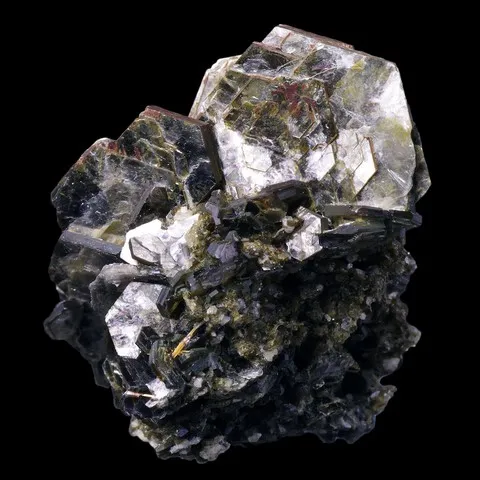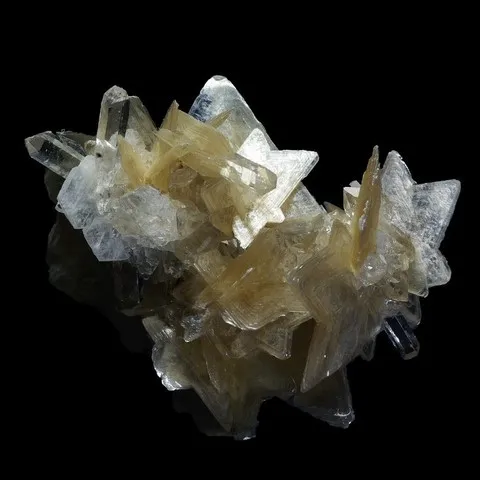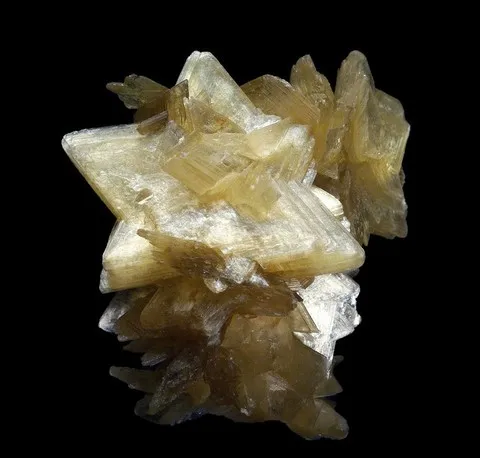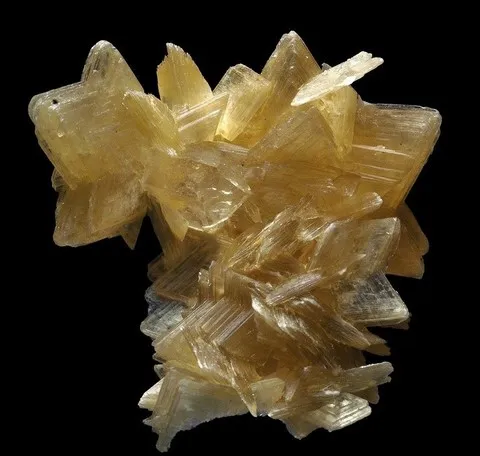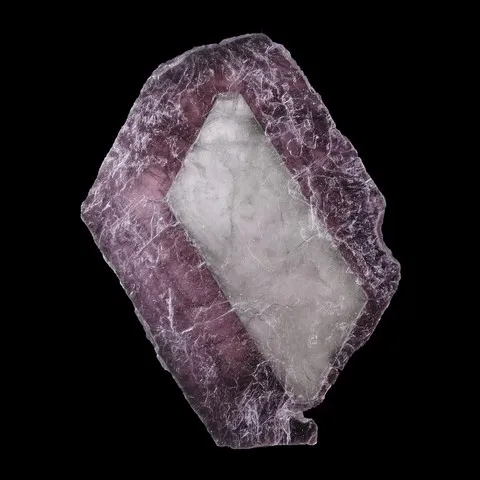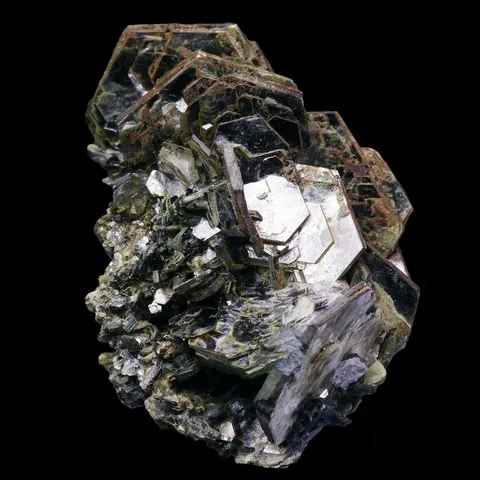MUSCOVITE
Class : Silicates
Subclass : Phyllosilicates
Crystal system : Monoclinic
Chemistry : KAl2(Si3Al)O10(OH,F)8
Rarity : Very common
Muscovite is a very important and extremely frequent phyllosilicate of the mica group. Its name comes from the Latin vitrum muscoviticum (Moscow glass); indeed it was exported in the past via Moscow in large transparent sheets under this name, it was used as window panes. It is an essential constituent of many metamorphic rocks (micaschists, gneisses), most leucogranites and greisens, pegmatites where it reaches its maximum development, detrital sedimentary rocks because of its near inalterability, and hydrothermal veins. It is however absent from volcanic rocks. Muscovite has several varieties : fuchsite (green due to the presence of chromium), phengite (low aluminum content), damourite and sericite, fine varieties that announce the transition to clays, and alurgite (rare muscovite manganiferous purple tint). Muscovite has a very characteristic habitus in transparent colorless to silvery-white lamellae, sometimes greenish, yellowish or brownish, which are easily disintegrated with the fingernail thanks to the existence of a perfect cleavage. It also occurs in laminar masses, more rarely in tabular crystals with pseudohexagonal or lozenge outlines. It can form enormous monomineral masses. It is an industrial mineral used mainly for its insulating properties.
Muscovite in the World
Muscovite in France
In France, good specimens of muscovite have been extracted from pegmatites in Brittany and Limousin (Chanteloube).
Twinning
Twins on the [310] axis are common, rarer according to the {001} plan.
Fakes and treatments
No fake inventories for this mineral species.
Hardness : 2.5
Density : 2.77 to 2.88
Fracture : Scaly
Trace : White
TP : Translucent to transparent
RI : 1.552 to 1.618
Birefringence : 0.035 to 0.042
Optical character : Biaxial -
Pleochroism : Weak
Fluorescence : None
Solubility : Insoluble
Magnetism : None
Radioactivity : None

